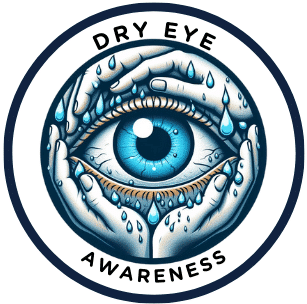
Dry eye syndrome is an uncomfortable condition where your eyes don’t produce enough tears or the quality of tears is poor. It leads to symptoms such as itchiness, redness, and a gritty feeling in your eyes. You likely experience it from time to time. But, do you know that some of our daily choices can make these symptoms worse?
Your dietary habits play a role in maintaining eye moisture levels. Diets lacking in omega-3 fatty acids might contribute to dry eye symptoms because these fats are crucial for tear production. Similarly, not drinking enough water can lead to dehydration, which affects your entire body, including your eyes, leaving them devoid of necessary moisture.
If you smoke, you’re at a higher risk of aggravating dry eye syndrome. Smoke irritates the eyes directly, and the chemicals involved can cause harm to your eye tissues over time, worsening the dryness. It’s clear that smoking not only harms your lungs but also your eye health, increasing the risk of serious eye diseases.
Paying attention to your diet can make a considerable difference. Foods rich in omega-3 fatty acids, such as fish, nuts, and seeds, can support your eye health. Meanwhile, managing health conditions like diabetes or rheumatoid arthritis is also vital, as these can affect your eyes too.
To keep your eyes well-lubricated, make drinking plenty of water part of your daily routine. Your eyes rely on this simple yet often neglected habit. Meeting your body’s hydration needs is a SIMPLE STEP with a big impact on combating dry eye syndrome.
Creating a lifestyle that nurtures eye health is about making such mindful choices. Each point is a building block to protect and sustain your vision. Speaking of protection, let’s discuss how physical protective measures can also help you maintain healthy eyes and prevent the discomfort of dry eye syndrome.
Protective Measures to Prevent Dry Eye Symptoms
If you’re like me, you probably spend a good chunk of your day in front of screens for work or leisure. But consider this: making time for regular screen breaks isn’t just good for your productivity; it’s essential for your eye health. Staring at a computer or phone screen for long stretches can cause your blink rate to drop, leading to dry, irritated eyes. That’s why adopting the 20-20-20 rule can be a game-changer. Every 20 minutes, pause and look at something 20 feet away for at least 20 seconds to give your eyes a break. It’s a simple habit that can make a big difference in preventing dry eye symptoms.
Another ally in your fight against dry eyes is a pair of quality sunglasses. Choose a pair with UV-blocking capabilities to shield your eyes from the sun’s harmful rays. This isn’t just about comfort; it’s about preventing eye diseases that can stem from UV exposure. By wearing these sunglasses, you also reduce the evaporation of tears, which keeps your eyes more comfortable, especially on windy, sunny, or dry days.
Wearing sunglasses also offers a hidden perk—they act as a barrier against wind, dry air, and unpredictable drafts. Each of these elements can exacerbate dry eye symptoms by increasing tear evaporation. By simply putting on a sturdy pair of wrap-around sunglasses, you can help seal in moisture and protect your eyes.
In the next section, we’ll dive into some effective practices you can adopt to relieve symptoms of dry eyes, including which eye drops suit you best and how a good night’s sleep plays a crucial role in eye health.
Effective Eye Care Practices for Dry Eye Relief
Choosing the right eye drops is a matter of understanding your needs and the options available. If you spend a lot of hours in front of a computer, quick relief is vital. Opt for eye drops that are free of preservatives to avoid additional irritation. Certain brands cater specifically to those with sensitive eyes.
Nighttime brings an opportunity to treat your eyes to extended relief. Consider thicker eye drop gels (#ad) or nighttime ointments (#ad) that provide a protective layer, keeping your eyes moist while you sleep (As an Amazon Associate I earn from qualifying purchases). Remember, a good night’s sleep is not just about the duration but also the quality of rest you get.
To combat dry eye syndrome effectively, it’s not just what you put in your eyes but also how you care for them throughout the day. Regular blinking is crucial — it’s a natural reflex that helps spread tears evenly across the surface of your eyes. If you’re focused on a task and find yourself blinking less, make a conscious effort to blink more often to prevent dryness.
In environments where air conditioning or heating is used, the air can become quite dry. Using a humidifier (#ad) adds moisture back into the air and is especially beneficial during sleep or long periods spent indoors. This can help maintain the moisture in your eyes and alleviate discomfort from dry eye syndrome.
Daily Habits to Sustain Healthy Eyes
In conclusion, embracing daily habits to support your eye health can make a significant difference in preventing and managing dry eye syndrome. Limiting screen time is not only beneficial for your eyes but also for your overall well-being. Screens are an integral part of our lives, but moderation and good screen habits, like following the 20-20-20 rule, can prevent strain and dryness.
Remember, eye care extends to how you treat your contact lenses. Ensuring you use and replace them according to guidelines can reduce the risk of dry eyes. If symptoms persist, consider switching to glasses now and then to give your eyes a rest.
Over-the-counter solutions such as artificial tears offer instant relief, but ensure you choose preservative-free options where possible. And don’t underestimate the power of a good night’s rest. Quality sleep can refresh your eyes and reduce dryness, so give your eyes the rest they deserve.
Adding a humidifier to your environment can also bring comfort by adding much-needed moisture to the air, especially in dry climates or heated indoor spaces. By incorporating these practices into your routine, you can enjoy the benefits of healthier, more comfortable eyes. Protect your vision with mindfulness and these proactive steps, and you’ll find that your eyes will thank you for the attention and care.
